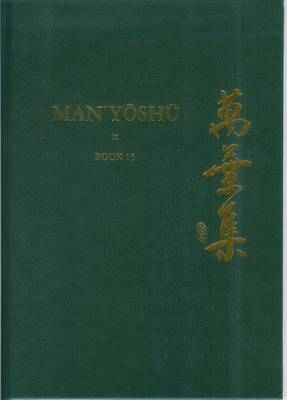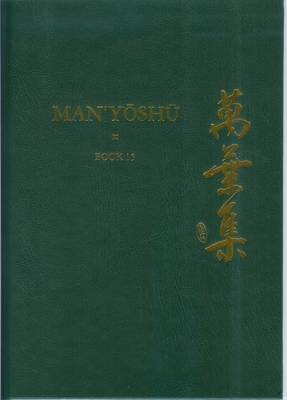
- Retrait gratuit dans votre magasin Club
- 7.000.000 titres dans notre catalogue
- Payer en toute sécurité
- Toujours un magasin près de chez vous
- Retrait gratuit dans votre magasin Club
- 7.000.0000 titres dans notre catalogue
- Payer en toute sécurité
- Toujours un magasin près de chez vous
Man'yōshū (Book 15)
A New Translation Containing the Original Text, Kana Transliteration, Romanization, Glossing and Commentary
210,95 €
+ 421 points
Description
This new translation, the lifework of the author, is fully academically oriented. Given that it is the largest Japanese poetic anthology and thus the most important compendium of Japanese culture of the Asuka period (AD 592-710) and most of the Nara period (AD 710-784), it is very much more than a work of literature, which has been the single focus of previous translations by Pierson and Suga.Thus, in this translation the author has sought to present the Man'yōshῡ to the reader preserving as far as possible the flavour, sounds and semantics of the original poems. The result is a more literate but true translation. In addition, because the realia of the Man'yōshῡ are mostly alien to both Westerners and modern Japanese, the text contains appropriate commentaries that illuminate the context. Also unique to this new version is the appearance of the original text, kana transliterations, romanization and glossing with morphemic analysis for the benefit of specialists and students of Old Japanese.
The entire translation will consist of 20 volumes, paralleling the original twenty books. The first to be published is volume 15 (announced here) one of six books written mostly in phonographic script. The author argues that the importance of book 15 lies in the fact that it contains a large number of Western Old Japanese grammatical forms and constructions that are not attested in any other Western Old Japanese text, but are extremely important in understanding this language, thereby providing a valuable foundation for all the other Man'yōshῡ texts, including those written in semantographic text. The publication sequence and anticipated dates of the remaining volumes will be announced at a future date.
The entire translation will consist of 20 volumes, paralleling the original twenty books. The first to be published is volume 15 (announced here) one of six books written mostly in phonographic script. The author argues that the importance of book 15 lies in the fact that it contains a large number of Western Old Japanese grammatical forms and constructions that are not attested in any other Western Old Japanese text, but are extremely important in understanding this language, thereby providing a valuable foundation for all the other Man'yōshῡ texts, including those written in semantographic text. The publication sequence and anticipated dates of the remaining volumes will be announced at a future date.
Spécifications
Parties prenantes
- Traducteur(s):
- Editeur:
Contenu
- Nombre de pages :
- 240
- Langue:
- Anglais
- Collection :
- Tome:
- n° 15
Caractéristiques
- EAN:
- 9781906876036
- Date de parution :
- 01-08-09
- Format:
- Livre relié
- Format numérique:
- Genaaid
- Dimensions :
- 173 mm x 249 mm
- Poids :
- 612 g

Les avis
Nous publions uniquement les avis qui respectent les conditions requises. Consultez nos conditions pour les avis.





